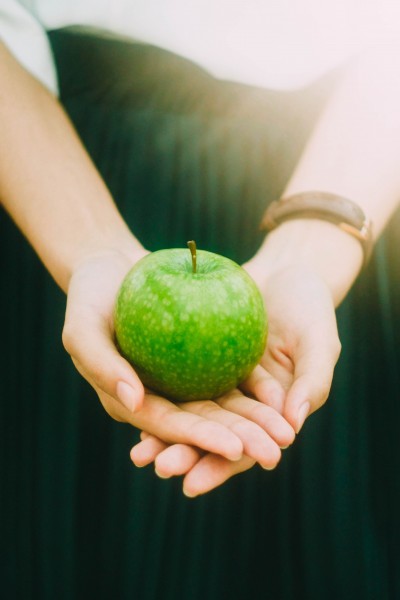
Are you thinking about a career in the health sciences and considering studying nutrition? People are increasingly aware of what they eat and how this can influence their ongoing health and wellbeing. Medical knowledge and research is also expanding our understanding of what effect specific foods have on the body, and allowing us to tailor diets accordingly. For an insight into what studying nutrition entails and how to establish a practice, ntpages had a chat with Claire Yates, a recent graduate of Endeavour College’s Bachelor of Health Sciences (Nutritional Medicine).
Firstly, can you define what exactly nutritional medicine is?
"It is the study of food, its nutrients and how diet affects health and wellbeing."
What role do clinical nutritionists fulfil?
"Nutritional medicine practitioners view all food, diet and nutritional supplements from the perspective of their therapeutic value, providing dietary advice to clients and prescribing nutritional supplements to assist in the treatment of a broad range of health conditions."
Did you always want to study natural health?
"Yes, I have always been passionate about health and nutrition; though finding the right time and having the money have always been an issue. I also had an unhealthy relationship with food when I was growing up – so studying nutrition has helped me to overcome and remove this negative emotional attachment."
How long was your course?
"The Bachelor of Health Sciences (Nutritional Medicine) course is over three years full time, but I worked while I studied part time - so it took me four."
How did you balance work and study?
"It can be tricky considering that I was working anywhere from 20 – 30 hours a week. At the end of the day if you are passionate about something it is all worth it. I also had the support of my wonderful husband throughout, which was fantastic."
How was the course structured?
"It did really cover everything, from chemistry and biochemistry to biological science, communication and counselling, clinical examination and dietary planning and much, much more. Like any course you start with the basics, and I thought we were learning stuff I would never need. It all comes together in your final year though – that’s when it all clicks together and you realise why you learn all that apparently random stuff in your first year."
Did your course help in setting your practice up?
"Yes, very much so. We had a class called "Establish and Manage a Practice" which was perhaps the most valuable element of the whole degree. It really got us thinking about entering the big wide world, looking at marketing strategies for our business and developing niche markets and services. A few of the lecturers at Endeavour also had their own practices which we visited – so this gave us a valuable insight into what it all entails."
Describe the process of establishing your own practice.
"No one should be under any illusions – it is tough out there! When you start your own business it takes time to establish, and you want everything to happen asap! But it is very rewarding, especially when things start to click into place."
Tell us a little bit about your practice, Edible Health?
"At Edible Health we teach people how food can improve their health and wellbeing, while reducing stress and illness. We also provide you with simple methods to help you to identify what foods work for you and those that do not, and assist you in creating eating plans that work for your lifestyle. This includes exciting recipes and simple tools to make a lifelong health change."
What happens at an initial consultation?
"This typically includes a nutritional and health assessment completed using diagnostic techniques such as blood pressure, iridology, tongue and nail examinations. A detailed client history and food diary is also completed before your first consultation, in order for us to assess your current health and past medical history."
What was your experience of studying at Endeavour?
"It’s a great balance of theory and interactive components. An example of the interactive element is a task we had to complete titled: "food as medicine". We had to cook something which was nutritionally healthy and bring it into class to be reviewed. I also found the lecturers and staff to be of an extremely high calibre - knowledgeable and engaging – which made learning fun and interesting."
Is your degree professionally recognised?
"Absolutely, the qualification is recognised by employers as well as the Australian Natural Therapists Association (ANTA). I also recently applied for my Masters in Public Health at Southern Cross University (SCU), and I was accepted immediately with no problems."
If you want to study nutrition, you can check out the different nutrition courses available in your area. Or you can also try an online course. Or you can try consulting with a local nutritionist.
|
Do you have a natural health & wellness business? |




